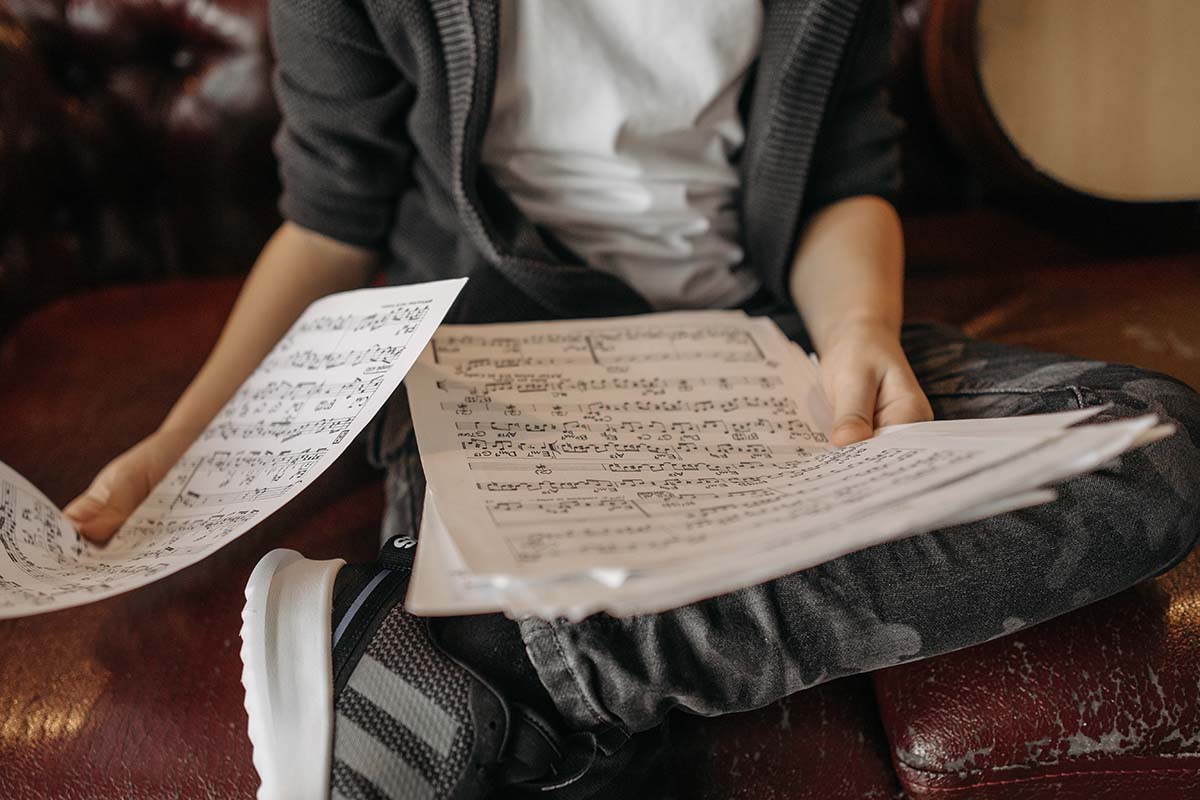Historically, music and language have been used as complementary communication systems. Although music is often considered a universal language, it is also inextricably linked to the cultures from which it originates. In recent years, with the rise of globalization and the omnipresence of technology, the role of music and language in communication has changed radically.
Similarities and differences between music and language
Music and language are both essential tools for communication, although they differ in the way of acquisition. Here are some similarities and some differences between language and music communication.
Similarities
Music and language share many similarities, from their ability to convey complex meanings quickly to their reliance on pattern matching for comprehension. While both are certainly different forms of communication, the commonalities can be seen in how musicians and composers use chords, instruments, and melody to portray a feeling, as well as how linguists parse words into sentences, playing with syntax and tone.
Moreover, as language evolves, so too makes music; At the same time, certain basic principles remain unchanged throughout generations; understanding how they fit together can show how trends and customs affect our society.
Therefore it’s easy to recognize why music influences our shared experiences – its strengths lie in mirroring what we all instinctively seek out through language.
Differences
Generally, language acquisition happens on a mental level – we learn through theoretical methods such as reading, writing, and rote memorization. However, music involves a physical component beyond learning new words or phrases; it requires its kind of body memory that combines muscle memory with sight-reading techniques to allow us to play or sing unfamiliar songs.
The rhythmic element also entails a whole other form of expertise that carries challenges and rewards. Ultimately, this arrangement demonstrates how varied our communication can be and how truly remarkable it is that we can understand each other so well, regardless.
Aspects of the Music-Language Relationship
The relationship between music and language has been studied for centuries, and it turns out that the two have a lot in common. Music and language share patterns, structure, and even emotions, allowing us to learn both more effectively.
For instance, playing the piano can provide various benefits for those who learn a new language; playing music engages different parts of the brain, allowing for better cognitive functioning, which can transfer over into mastering foreign languages.
In this way, music can support and enhance language learning by stimulating the brain’s ability to learn and process speech-based information more quickly and effectively.
Importance of Music Education
Music can have a powerful effect on a child’s brain development. Playing a musical instrument like the piano has improved their academic skills in several crucial areas.
This includes language acquisition, as kids learn to read music and learn words associated with it, like chords and notes. It also helps them learn to focus, as playing an instrument requires concentration and practice.
Furthermore, one study found that listening to music can increase reading comprehension. Overall, teaching children to learn music has positive effects on their intellectual growth and development.
Music as Language
Music is the only universal language which needs no translation, – Berthold Auerbach. Music is a universal language that transcends cultures and borders alike. Learning to play an instrument is a great way to understand this language.
Playing an instrument not only allows for a more nuanced understanding of music but can also lead to many personal benefits; increased self-discipline from practicing regularly and improved coordination from mastering complex pieces are just two examples. Music has been with us since time immemorial, and learning how to play the piano is one way of appreciating this beautiful art form in its many facets.
Language as a Complementation of Music
The relationship between language and music is fascinating and has captivated the attention of experts worldwide. Language has always been seen as complementary to music, strengthening and emphasizing the power of harmony and melody.
Indeed, much modern-day songwriting relies on lyrics to bring emotion to otherwise bland instrumentals. This combination provides a unique experience for both performers and listeners, allowing for greater emotional expression than each could provide.
Music remains unexplored mainly in its connections with language, providing an exciting opportunity for creative exploration yet to be pursued.
Final thoughts
As communication systems, language, and music share some key features. They are both structured systems with rules that govern their use. And they are both used to communicate thoughts and feelings from one individual to another.
However, there are also significant differences between the two. Language is primarily a verbal communication system, while music is predominantly nonverbal. In addition, language is mainly used for informational purposes, while music is often used for emotional or aesthetic purposes. Despite these differences, language and music play essential roles in human communication.





















